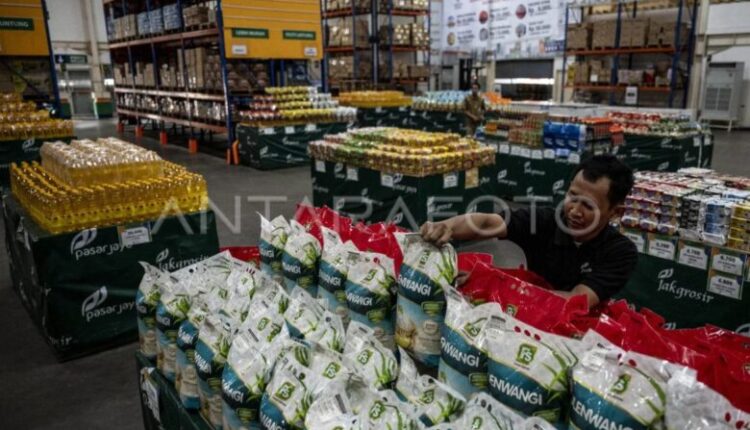Basic Needs Not Affected, 1 Percent VAT Adjustment Favors the People
By: Vania Salsabila Pratama)*
The adjustment of the Value Added Tax (VAT) rate to 12% which will be enforced starting January 1, 2025 is a strategic step by the government in strengthening economic stimulus without burdening the people.
In this policy, basic needs of the community are still exempt from VAT, so that the purchasing power of low-income people is well maintained. This step confirms that the government is on the side of vulnerable groups while ensuring the sustainability of national development.
Finance Minister Sri Mulyani Indrawati emphasized that the principles of justice and mutual cooperation are the basis of the policy. The government ensures that 0% VAT applies to basic necessities, education services, health, and public transportation.
This shows the government’s commitment to protecting the most needy groups in society. In addition, the government also provides subsidies for goods such as wheat flour, industrial sugar, and Minyak Kita.
The support is accompanied by a stimulus allocation of IDR 265.6 trillion in 2025 which is directed at social protection and tax incentives. The majority of the benefits of these incentives are enjoyed by households, MSMEs, and the business world.
Sri Mulyani explained that taxes are an important instrument in sustainable development. With the adjustment of VAT rates, the government has more room to strengthen the financing of subsidies and social assistance.
The policy is a concrete manifestation of the principle of justice, where people who are able to pay taxes according to their obligations, while groups who are unable to get protection and even direct assistance. This step not only supports fiscal sustainability, but is also an integral part of encouraging inclusive economic growth.
Coordinating Minister for Economic Affairs Airlangga Hartarto also explained that this policy is an implementation of the mandate of Law Number 7 of 2021 concerning Harmonization of Tax Regulations (UU HPP). Article 7 paragraph 1 of the HPP Law states that the VAT rate of 12% will apply no later than January 1, 2025.
Airlangga ensured that the government continues to pay special attention to the needs of low-income communities. To that end, the government is bearing a 1% increase in VAT for certain foodstuffs that are basic needs of the community. This policy is designed so as not to burden vulnerable groups while still providing a significant contribution to state revenue.
Airlangga added that this tariff adjustment not only supports state revenue, but is also an important step in strengthening the national economy. This policy provides more space for the government to increase the budget in sectors that directly affect people’s lives.
Budget allocation for social protection programs, empowerment of MSMEs, and development of social infrastructure are top priorities. Thus, the adjustment of VAT rates not only fulfills the mandate of the law, but also reflects the government’s commitment to the welfare of the people.
Head of the Ministry of Finance’s Communication and Information Services Bureau, Deni Surjantoro, explained that the policy had gone through an in-depth discussion process with the DPR.
The government considered various economic, social, and fiscal aspects in formulating this policy. Deni emphasized that the principle of justice remains the main foundation in implementing the fiscal policy. This step is designed to provide real benefits to all levels of society, especially the most vulnerable.
According to Deni, the 1% increase in VAT rates is expected to increase state revenues without neglecting protection for vulnerable groups. The stimulus provided by the government not only targets low-income people, but also supports the business world and MSMEs through various tax incentives. This comprehensive approach ensures that the policy is able to encourage inclusive and sustainable economic growth.
With a focus on justice and social protection, this VAT rate adjustment policy shows how the government is trying to maintain a balance between fiscal needs and protection for the lower classes. The government understands that sustainable development requires support from all levels of society, while still prioritizing vulnerable groups.
The strategic step is in line with the government’s vision to create a fair taxation system and contribute to the welfare of the people. The adjustment of the VAT rate of 12% is not a threat to people’s purchasing power, but rather a solution to strengthen the social safety net and expand the benefits of economic development for all levels of society.
In terms of basic needs, people need not worry because this policy ensures that essential goods remain free from VAT. This shows that the government continues to side with the people who have always been the main priority.
The adjustments provide the government with more space to optimize various social protection and economic empowerment programs. In addition, this policy provides certainty that economic development will not leave vulnerable groups behind. The principle of justice that underlies this policy ensures that all levels of society feel real benefits.
Overall, the VAT rate adjustment policy is proof that the government is able to implement the principle of justice in taxation. With an approach that is oriented towards people’s welfare, this step is an example of how fiscal policy can support inclusive and sustainable economic development. The government shows that siding with the people is not only a commitment, but a real manifestation in every strategic policy taken.
)* The author is a contributor to the Ruang Baca Nusantara
